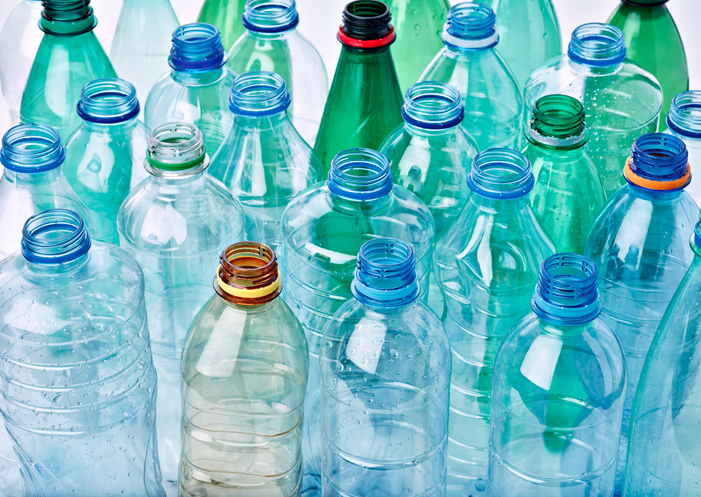Changing Standard in NY and Elsewhere Present Moving Target
New Jersey has taken a major step towards increasing the use of recycled materials in packaging with a new law that establishes post-consumer recycled (PCR) content requirements for plastic and glass packaging sold in the state. The goal of the New Jersey PCR requirements is to stimulate recycling markets and drive the incorporation of more recycled content to reduce waste and environmental impact.
Today we’re examining PCR, the new requirements, and how our formulation services can help meet the new standard. Let’s get started.
We’re Here to Help: Reach out to FCS Consulting today for compliance consulting, formulation services, and more chemical analysis assistance.
What is Post-Consumer Recycled (PCR) Content?
Post-consumer recycled content refers to plastic waste that has completed its intended consumer use and would otherwise be disposed of as solid waste. This differentiates it from pre-consumer recycled materials, which are manufacturing scrap or regrind.
Using more PCR helps divert plastic from landfills and reduces the need for virgin plastic derived from fossil fuel feedstocks. However, recycled plastic can have different properties than virgin due to thermal, oxidative, and mechanical degradation from previous use cycles.
This makes achieving high PCR loadings while maintaining technical requirements like clarity, impact strength, and processing a formulation challenge. The existence of unintended contaminants, variations in PCR sources, and regulatory compliance for things like food-contact approvals also add complexity.
New Requirements for Plastic Beverage Bottles
The New Jersey law sets specific PCR content mandates for single-use plastic beverage bottles sold in New Jersey. It follows similar legislation already in place in California and Washington. Here are the key points for the New Jersey version:
- Starting January 18, 2024, beverage bottles must contain at least 15% PCR content on average.
- The required minimum PCR percentage will increase by 5% every three years, reaching 50% by 2036.
- However, hot-filled plastic beverage bottles have a lower maximum of 30% PCR content due to performance requirements.
- Manufacturers violating the PCR rules face civil penalties ranging from $1,000 to $25,000 per violation, along with potential per-pound fines for using virgin materials instead of PCR.
Compliance Concerns with New Jersey PCR Requirements
To ensure compliance, manufacturers selling plastic bottles or glass packaging in New Jersey must register annually with the state Department of Environmental Protection beginning in 2025. They will also need to submit certifications demonstrating they meet the applicable PCR content minimums.
This new law underscores the importance of diligent formulation management to meet evolving sustainability regulations while ensuring package integrity and performance. As legislation promoting circularity and recycled content usage grows, having an experienced partner to guide compliant packaging formulation will be critical.
The Need for Formulation Expertise
With strict PCR content rules now on the books in New Jersey, manufacturers must reformulate their packaging to incorporate higher recycled plastic loadings. However, increasing PCR levels can impact properties like strength, processability, clarity, and organoleptics.
An experienced formulation provider can help brands navigate this transition skillfully. By leveraging innovative formulation strategies, testing methodologies, and performance-enhancing additives, companies can raise PCR percentages while maintaining all required package specifications.
Formulation expertise will be invaluable for overcoming formulation challenges to meet the new mandates reliably and cost-effectively as PCR requirements continue to rise over the next decade. Having a knowledgeable partner to assist with sustainable reformulation work will allow brand owners to compliantly embrace circularity while avoiding potential penalties, packaging failures, or brand quality issues.
The new New Jersey law crystallizes the need for formulation excellence to achieve cutting-edge sustainability objectives. As more states and countries enact similar PCR content regulations, formulation resources, and capabilities will be essential for the packaging industry.
Navigate New Jersey PCR Requirements with FCS Consulting
FCS Consulting can serve as your all-in-one partner for formulation analysis, conducted onsite in our fully-equipped laboratory. Beyond analysis, we also offer a full suite of compliance consulting, keeping you informed about changing regulatory standards and how best to meet them. With a comprehensive range of formulation services, including certification assistance, documentation delivery, turnkey formulations, and more, we help your products stay compliant and on the shelves.
Need assistance adjusting to the New Jersey PCR requirements? Contact our team today to learn how we can help.

